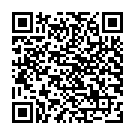|
|
|
| Module code: DFMEES-214 |
|
|
2VU (2 hours per week) |
|
3 |
| Semester: 2 |
| Mandatory course: yes |
Language of instruction:
German |
Assessment:
Written exam (80%) and laboratory exercise with a short paper (20%).
[updated 09.11.2022]
|
DFMEES-214 (P610-0572) Electrical Engineering - Renewable Energy and System Technology, Master, ASPO 01.10.2019
, semester 2, mandatory course
|
30 class hours (= 22.5 clock hours) over a 15-week period.
The total student study time is 90 hours (equivalent to 3 ECTS credits).
There are therefore 67.5 hours available for class preparation and follow-up work and exam preparation.
|
Recommended prerequisites (modules):
None.
|
Recommended as prerequisite for:
|
Module coordinator:
Prof. Dr.-Ing. Ahmad Osman |
Lecturer:
Marc Quirin, M.Sc.
[updated 29.09.2022]
|
Learning outcomes:
After successfully completing this module, students will be familiar with the fundamentals of
non-destructive materials testing. Students will be familiar with the most commonly used procedures in NDT,
both theoretically and practically. In addition students will:
be able to apply the methods they have learned in practice.
[updated 09.11.2022]
|
Module content:
1. Introduction to NDT
2. Ultrasonic testing
2.1. Introduction
2.2. Physical principles
2.3. Probe design, sound field and instrumentation
2.4. Principles of angle beam scanning
2.5. Phased array probes
2.6. Error control
2.7. Summary
3. Eddy current testing
3.1. Introduction
3.2. Physical principles
3.3. Basics of eddy current testing
3.4. Properties of eddy currents
3.5. Device design and functions
3.6. Summary
4. Infrared testing
4.1. Introduction
4.2. Physical principles
4.3. Radiation Physics
4.4. Interaction of electromagnetic radiation with matter
4.5. Active infrared thermography
4.6. Summary
5. Magnetic particle testing
5.1. Introduction
5.2. Physical principles
5.3. Physical metrology
5.4. Detection and application limits
5.5. Error check/flux leakage test
5.6. Applications
5.7. Test equipment and instrumentation
6. Lab tests for the procedures
6.1. Ultrasonic testing
6.2. Eddy current testing
6.3. Thermography
7. Conclusion
[updated 09.11.2022]
|
Teaching methods/Media:
Interactive lecture with written exam and practical exercises, as well as lab work in
small groups with tests.
Transparencies with animations, schematic and real images.
[updated 09.11.2022]
|
Recommended or required reading:
Prof. Dr. –Ing. Bernd Valeske / Vorlesungsskript zfP1
Hochschule für Technik und Wirtschaft des Saarlandes, Campus Alt-Saarbrücken
• V. Deutsch: ZfP – kompakt und verständlich
Castell-Verlag (Wuppertal), Informationsreihe, Bände 0 bis 12, ab Jahrgang 2002
• J. Krautkrämer & K. Krautkrämer
Zerstörungsfreie Werkstoffprüfung mit Ultraschall
Springer Verlag, 5. Auflage, 1986
• Xavier P.V. Maldague
Theory and Practice of Infrared Technology for Nondestructive Testing
Wiley-Interscience, 2001
[updated 09.11.2022]
|

